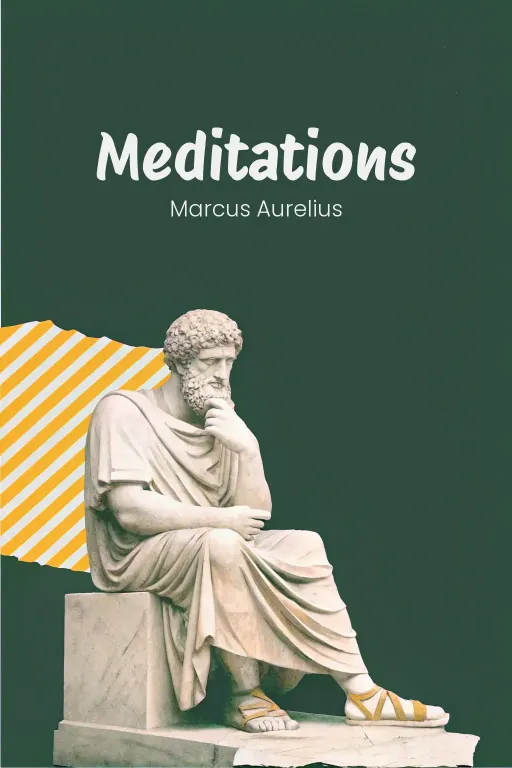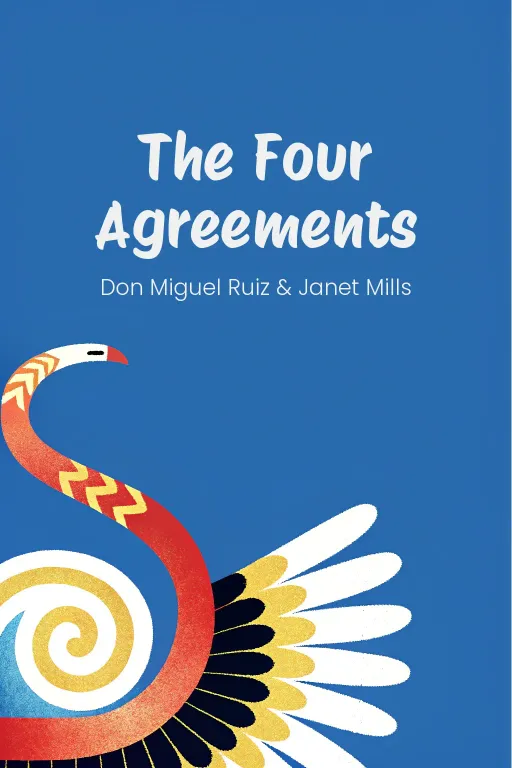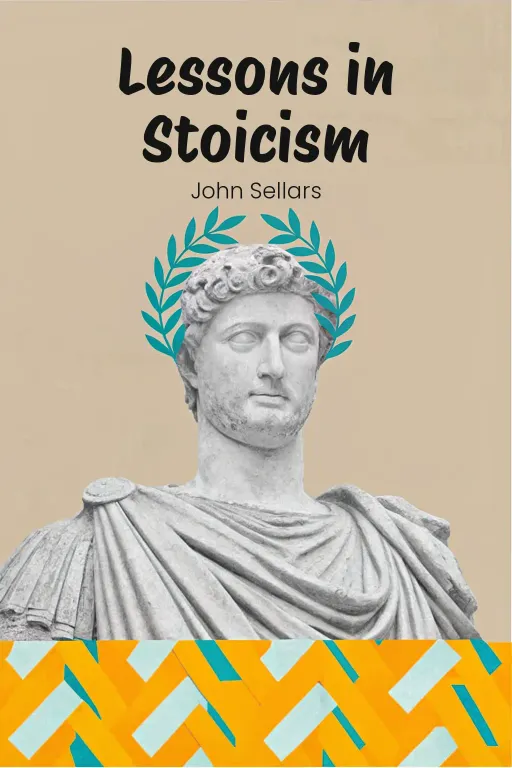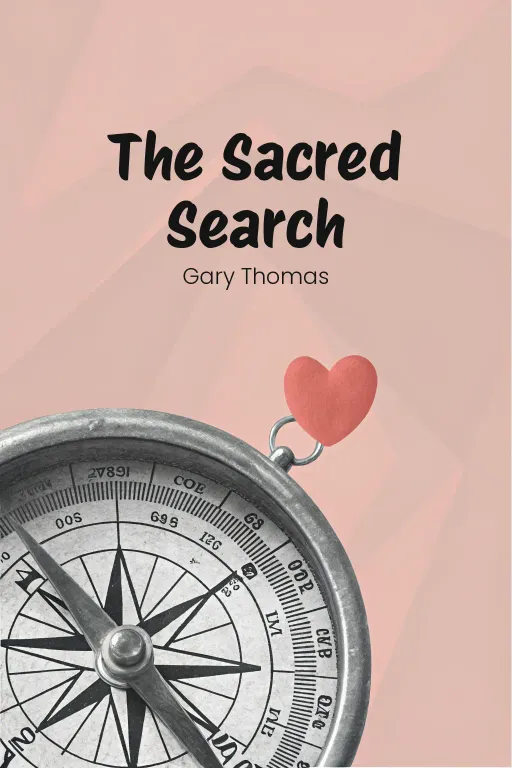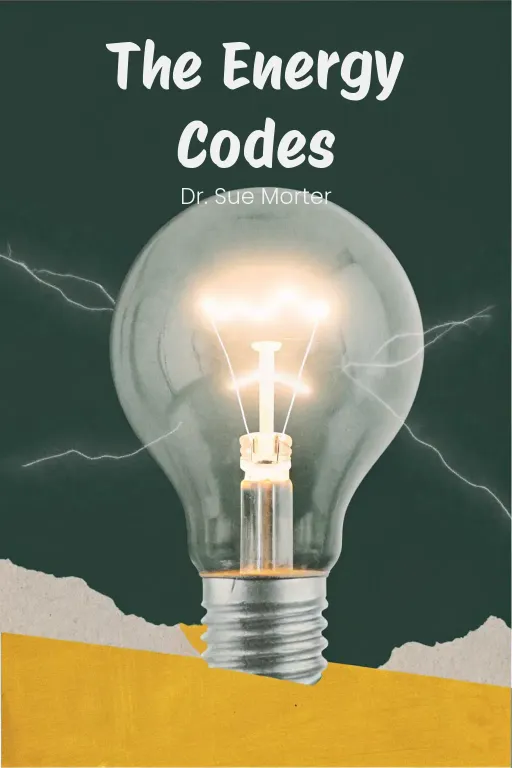
Find Joy: Master Your Emotions Now!
Podcast by Beta You with Alex and Michelle
Explore God, Reason, and the Human Spirit in This Great Work
Introduction
Part 1
Alex: Hey everyone, welcome! Today we're tackling “The Ethics” by Benedict de Spinoza – one of the most ambitious, and let's be honest, mind-bending, philosophical works ever written. Michelle: Ambitious is an understatement. This guy tries to explain the entire universe, human emotions, everything… using geometry. I mean, did nobody tell him philosophy class doesn’t require you to bring your compass and ruler? Alex: But see, that’s what’s so brilliant, Michelle. Spinoza, this rigorous, almost mathematical approach to human existence, because he’s trying to uncover something huge: that everything – absolutely everything – is connected through what he calls God, or Nature. Michelle: Hold on – "God" isn't some dude with a beard and sandals? It's, what, the universe itself? Now, that's a twist. Alex: Exactly! Spinoza redefines God as the ultimate, infinite substance. He's basically saying it's the bedrock of everything. From the vast cosmos to the tiniest atom, it all comes from this one, indivisible essence. It's a pretty radical idea of how reality is structured. Michelle: Okay, that’s… pretty wild. So, where does Spinoza go with this cosmic theory? Is it just some kind of abstract spirituality, or does it actually apply to, you know, real life? Alex: Oh, it absolutely applies. That’s what makes it so worthwhile! Today, we're going to break down three key aspects of his philosophy. First, how this God as infinite existence is both the cause and the substance of everything. Second, Spinoza’s take on human emotions—why we feel what we feel, how understanding those emotions can lead to some kind of freedom. And third, his path to true joy: the intellectual love of God, which he sees as our ultimate, highest calling. Michelle: Wow, that’s a lot to unpack. Infinite God-substance, emotional mastery, and eternal joy? Is Spinoza trying to turn us all into enlightened philosopher-saints? Alex: Well, maybe not saints, per se– but he does offer a blueprint for living a virtuous and harmonious life, both with ourselves and the world around us. Think of it as a journey that starts with the vastness of the universe, dives deep into our own hearts, and then zooms back out again, seeing it all as sort of one cohesive whole. Michelle: From the cosmos to the self and back again, huh? Alright, let's see if Spinoza’s geometric philosophy can actually… you know… “add up” in the real world.
The Nature of God and Substance
Part 2
Alex: Okay, let's dive right in. We've got to start with Spinoza's game-changing redefinition of God and substance. This is really the bedrock of his entire philosophy, the metaphysical foundation upon which The Ethics is built. And Michelle, I'm not exaggerating here, Spinoza doesn't just tweak the conventional understanding of God, he completely reimagines it, turning traditional ideas completely on their head. Michelle: Reimagines God, does he? That sounds like inviting some strongly worded letters from the Church, and, well history tells us that Spinoza definitely received quite a few of those. So, what exactly is so revolutionary about his concept? Alex: Right, so Spinoza begins by asking a pretty fundamental question: what exactly is substance? His definition is that it is something that exists in itself and is understood through itself; it's completely independent and doesn't require any external cause to exist. Then comes the audacious move: he identifies this infinite, self-sufficient substance as God. For Spinoza, God isn't some external creator looking down from above, God is existence itself. Everything – the trees, the stars, your laptop, even a bad hair day – is all part of this single, infinite reality. Michelle: Wait a minute. So, are you saying that instead of God being up there pondering our prayers or, you know, smiting sinners, God is the actual fabric of existence? Like… God's in my morning coffee? Alex: Absolutely! Your coffee, the steam rising from it, the neurons firing in your brain as you drink it – it’s all an expression of God's infinite substance. Spinoza has this famous saying, “whatsoever is, is in God.” Everything that exists does so within God and is a mode of God’s attributes. Michelle: Modes? Attributes? Hold on a sec. This is starting to sound like philosophy jargon bingo. Alex: Okay, fair enough. Think of God's attributes as the essential characteristics of this infinite reality. Spinoza argues there are an infinite number of them, but humans can only really grasp two: thought and extension. Thought refers to everything mental – ideas, consciousness – while extension covers the physical stuff, like matter and space. Modes, then, are the specific expressions or manifestations of those attributes. So, your thoughts, my voice, the chair you're sitting on would all be modes. Michelle: So, to recap, Spinoza's saying the whole universe isn't made up of separate, distinct things, but is instead one seamless reality, with God as the ultimate, infinite substance holding it all together. I think I get the gist, but... what's the point of all this metaphysical fancy footwork? Why not just stick with good old dualism—mind here, body there, thank you René Descartes? Alex: Well, for Spinoza, dualism is a false division. He rejects the idea that mind and body are two separate substances, as Descartes argued. Instead, they're just two ways of perceiving the same underlying reality. Think of it like looking at the ocean: from one perspective you see waves crashing, from another you see water molecules moving. Two views, one essence. Michelle: Right, I can definitely see why Descartes and Spinoza probably wouldn't have been philosophical buddies in that case. But doesn’t collapsing everything into one substance kind of create certain problems? Like, if God is everything, does that include all the really nasty stuff--wars, greed, and, of course, bad reality TV? Alex: Yes, it does, and that's where Spinoza's idea of necessity comes in. He argues that everything happens as an inevitable expression of God’s nature. There's no randomness or contingency; every event unfolds according to the laws of this infinite substance. So, while it can be tough to swallow, even the terrible things are part of the cosmic whole, arising from the same root as the good. Michelle: No randomness, huh? Sounds like he’s chucking free will out the window too. Are we just puppets in God’s big show, destined to just follow the script from start to finish? Alex: Not exactly puppets, since we do act, but we act within the framework of necessity. Spinoza would argue we're not as free as we like to think – our actions are shaped by our place in the universe and our connection to everything else. And understanding that necessity, and even embracing it for that matter, is what leads to true freedom. Michelle: Hold on, hang on. How does giving up the idea of free will lead to freedom? That sounds like trying to argue that being stuck in bumper-to-bumper traffic is just as liberating as an open highway. Alex: It's about reframing the whole concept of freedom. For Spinoza, freedom isn't just randomly doing whatever you want, it's about understanding your place in the bigger picture and acting in harmony with it. When you recognize that your emotions and actions are natural expressions of this infinite system, then you stop resisting reality. It's like being in sync with a dance. The song's already playing—you’re free when you move with the rhythm, not against it. Michelle: Okay that’s a pretty poetic way to put it, but let me play devil’s advocate here. If Spinoza's God is the whole infinite shebang but doesn't intervene, what about morality? How do we even begin to know how to act if there's no God handing down divine rules? Alex: Great question—and that’s actually where Spinoza’s system becomes really practical. Instead of relying on divine commandments, he believes virtue comes from aligning our actions with reason. By understanding our emotions and recognizing how they fit into the web of existence, we can act more rationally. So, forget about punishment or rewards, it’s about acting in harmony with the laws of nature. Michelle: Living in harmony with the laws of nature sounds great and all, but isn’t it a bit, you know, abstract? How does this concept become a reality in real life? Alex: Picture an ecosystem – a forest, for example. Every tree, animal, and microorganism is interdependent, forming a larger system. The soil nourishes the trees, which give oxygen to the animals, and so on. If one part acts destructively, it throws the whole system out of balance. Spinoza says the universe works much the same way: we thrive when we recognize our interconnection and act in ways that support the whole. Michelle: So, Spinoza's God is less about lightning bolts and more about… ecosystems? Honestly, this sounds like a philosophy that would go perfectly with a nice calming yoga session. Alex: It truly is transformative. By seeing everything – including ourselves – as part of God, Spinoza shifts the focus from worshiping this separate deity to truly understanding and loving the infinite system of reality that we're all immersed in. For him, the highest joy is this “intellectual love of God”—a kind of awe and gratitude for the sheer interconnectedness of everything. Michelle: An infinite substance that includes us, guides us, and freakishly determines everything at the same time. I seriously don’t know whether to feel comforted or completely trapped. But hey, if Spinoza’s version of God means I’m one with my coffee, well, I guess I’ll gladly take it.
Human Knowledge and Emotional Mastery
Part 3
Alex: Understanding God as the foundation of everything naturally leads us to explore how our knowledge and intellect fit into this divine structure. And honestly, that's where Spinoza's philosophy really shines. It's not just abstract thinking, you know? He actually shows us how our ways of understanding the world can lead us to emotional control and a fulfilling life. Michelle: Okay, that's a big leap to me— from universal source code to dealing with emotions? I mean, what’s the connection? Alex: Well, it bridges the gap between metaphysics and ethics. Spinoza's view of knowledge isn't just about theory, it’s practical. He breaks down knowledge into three levels: imaginative, rational, and intuitive. Think of them as steps; each one helps us clarify reality and handle our emotions. Basically, if we use reason to understand why we feel a certain way, we're no longer just slaves to our emotions. We can actually act deliberately and live better lives. Michelle: So, we've got three types of knowledge, each better than the last. Okay, lay them on me—what's the first one? Alex: The first is imaginative knowledge. That’s where most of us start. It's all about sensory experience and our own subjective impressions. Like first impressions: sometimes helpful, but often not the whole story. Michelle: So, it’s kind of like the "gut feeling" level of knowledge? Can you give me an example? Alex: Exactly. Spinoza says people often define things based on incomplete, personal observations. For example, someone who admires strength might think of "man" as simply "an animal that stands upright." It's not technically wrong, but it's super limited. Different experiences lead to different views, so there's not much agreement, and misunderstandings are common. Michelle: So, basically, Twitter arguments in the 1600s? Everyone arguing based on their own tiny slice of reality? Alex: Exactly! Imaginative knowledge causes these disagreements because it's shallow and not universal. It’s superficial, fragmented, and often wrong. Michelle: Okay, so level one is clearly unreliable. What's level two? Alex: Level two is rational knowledge. This is where we move past personal bias and start using logic. It's about seeing the connections between things, organizing our thoughts, and finding objective truths. Think of mathematics. It's all about logical relationships that apply everywhere. Michelle: Makes sense. Instead of just guessing or relying on personal experience, you have clear answers. Does Spinoza give us a math example for this? Alex: Absolutely! He compares it to working out a proportion in geometry. While imagination might lead to wild guesses, reason guarantees accuracy. It helps us get from incomplete impressions to organized knowledge. Michelle: Okay, rational knowledge sounds good—a step up. But does this mean Spinoza was all about logic and robots? Because something's missing if it stops at a purely logical view of the world. Alex: You're right, Michelle, and that's why there's a third level: intuitive knowledge. This is where it gets profound. Intuitive knowledge gives us a direct, complete understanding of reality. It's not about piecing together the truth; it's about seeing the core of things all at once, as part of a unified system. Michelle: Sounds like a major "aha" moment. What's an example of intuitive knowledge? Alex: Imagine a scientist who spends years studying all the parts of an ecosystem—soil, weather, plants. With rational knowledge, they'll understand a lot. But with intuitive knowledge, they'd see the whole forest as one interconnected thing, all parts working together perfectly. Michelle: Mind blown. So Spinoza's intuitive knowledge isn't just knowing facts—it's grasping the universe as one seamless, divine system. I guess that’s the "intellectual love of God" he talks about. Alex: Exactly. This love is the ultimate joy and freedom, where we see ourselves as integral parts of something bigger and infinite. And that brings us to emotions because how we feel about the world is directly linked to how well we understand it. Michelle: Ah, emotions. So we have this intellectual model, but now Spinoza's adding feelings? What's his take on all that? Alex: He starts by saying emotions are natural—neither good nor bad. They result from how our minds interpret physical reactions to things. But here's the key: emotions from unclear, confused ideas keep us stuck, but the emotions that come from clear, rational understanding? They empower us to act. Michelle: Let me guess—being stuck is when I'm endlessly scrolling on my phone, and being active is when I finally exercise? How do these work? Alex: Great example! Take failure. Someone feeling stuck might see failing an exam as just bad luck, leading to despair or giving up. But someone with rational understanding can see it as a necessary step in learning—turning frustration into motivation. Michelle: So, rational understanding isn't just about knowing stuff; it's about reframing your emotions to help you instead of hurt you. What about trickier emotions like jealousy or envy? Alex: Spinoza gets into that too. Emotions are so linked to past experiences that they rarely come in isolated forms. Like, someone might admire and envy a friend's success at the same time—respecting their achievement but also resenting their situation. Spinoza would say that kind of mixed-up emotion comes from unclear ideas. Michelle: So, simplifying this: emotions are like traffic lights for your knowledge. If you feel envy, maybe that's a red light, telling you that there is some confusion or you are missing some knowledge? Alex: Exactly. And when you use reason to get clarity, you stop being controlled by the emotion. Emotional mastery isn't about suppressing emotions, it's about changing them into something constructive. Michelle: Alright, so understanding emotions makes us more rational, and being more rational makes us… free? Sounds like Spinoza's version of leveling up in a video game. Alex: You could see it that way! Emotional control through reason is Spinoza’s way to freedom, freedom not just from external situation, but from internal chaos. When we using rational understanding, we align with the natural order, achieving virtue. Michelle: So, the freer we become, the better we act, and the better we connect to this grand divine thing Spinoza's talking about. Alright, this sounds pretty good. But mastering emotions is hard. How do we actually do this in real life? Alex: Spinoza would say start with self-awareness. Understand your emotions, figure out their causes, and see them as a picture. Over time, this reduces the grip of stuck, and enables rational choice. Emotional freedom takes time because it’s understanding yourself. Michelle: Ok, but if someone cuts me off on the freeway, I don't think Spinoza will be my first thought. Maybe I’ll try that intellectual love of God next time and see it gets me out of my road rage. Alex: Hey, all feelings are expressions of God too. So, your frustration is a part of the system. Spinoza says nothing easy is worth having, and this path to freedom through reason? He say it’s the ultimate expression of being human.
Virtue, Society, and the Intellectual Love of God
Part 4
Alex: Using reason to master our emotions is really the foundation for Spinoza's bigger goal: a path to virtue and ethical living. But here's the thing, it's not just about individual improvement. For him, virtue isn't just personal well-being; it's how we fit into society and connect to the universe. It's a complete philosophical loop. Michelle: Okay, so we're moving beyond just handling our emotions to Spinoza's idea of a good life. But what does virtue actually mean to him? I'm guessing it's more than just being polite. Alex: Absolutely. To Spinoza, virtue means aligning with your true nature. And that nature, as he sees it, is striving for self-preservation – not just surviving, but “really” thriving. That means using reason to guide your actions in ways that support both your mind and body. Michelle: So, virtue is less about following rules and more about tuning into our inner compass? How do self-preservation and ethics connect? Is it "look out for yourself?" Alex: Not at all. The genius of it is that Spinoza believes if you're truly rational about preserving yourself, it naturally leads to ethical behavior. When we act rationally, we see that our well-being is connected to others. Cooperation, fairness, even kindness – they're not sacrifices. They're actually rational ways to thrive together. Michelle: So, being virtuous is selfish, but in a good way? Like, to live my best life, I need to make sure everyone else is doing okay too? Alex: Exactly. Think of a business leader who values honesty. They're not being a martyr; they know that trust and stability benefit everyone, including their business. Spinoza's saying rationality takes self-interest from short-term gains to long-term harmony for everyone. Michelle: Right, but let's be real, not everyone's rational all the time. What if someone acts unvirtuously? Does that mess up Spinoza's harmony? Alex: Disruptions happen. That's why he emphasizes reason as the fix for destructive emotions like envy or anger. And, more broadly, societal harmony comes from systems that encourage rational, empathetic actions. Justice, for example, balances individual rights with the greater good. Michelle: Makes sense. Justice is the referee, keeping things fair. Does Spinoza give us an example of this working in society? Alex: Not specifically, but think about how a community responds to a natural disaster, like a flood. Rationality tells people that hoarding resources is short-sighted – it hurts everyone, themselves included. Empathy motivates people to help because it creates stability. It becomes a positive cycle. Michelle: Okay, rationality plus empathy equals societal harmony. But, honestly, suggesting everyone "act rationally" seems a bit optimistic. Reality is messier. Alex: True. That’s why Spinoza argues for rational governance. A just government creates an environment where people feel secure, both in their rights and in their responsibilities to others. It’s not about coercion but creating a society where rational cooperation becomes the norm because it benefits everybody. Michelle: So, Spinoza's designing the ultimate society – fairness, trust, and empathy everywhere. But what's the point? Is it just to make things work, or is there something more? Alex: Definitely more. The ultimate joy, according to Spinoza, is understanding our place in the grand scheme. That brings us to his key idea: the intellectual love of God. It’s the ultimate state where your mind aligns with the eternal truths about reality, beyond just the personal or societal level. Michelle: Intellectual love of God – sounds pretty lofty. What does Spinoza actually mean by it? Alex: It’s not about loving God as separate from us. It’s about loving existence itself – seeing God as the eternal, infinite reality we're all part of. It's "intellectual" because it comes from truly understanding our connection to the whole, with clarity and reason, not just emotions. Michelle: Sounds like a cosmic "I get it!" moment. What does that look like day-to-day? Just meditating on how everything's connected? Alex: Not really. It's a mental shift. Think about someone grieving the loss of a loved one. Initially, they're consumed by sadness, stuck on their personal loss. But, with reflection, they start to see a bigger picture – that life and death are part of an infinite cycle. They remember the joy their loved one brought and see their influence as part of the eternal existence. That shift from despair to gratitude? That's the intellectual love of God. Michelle: So, it's not just dealing with the pain, it's seeing it as part of something bigger. Does Spinoza think everyone can get there, or is it just for the enlightened few? Alex: He thinks it's possible for everyone, but it takes effort. It's not about being intellectually superior, it's about understanding reality clearly. The more we understand our connection to the infinite, the freer and more fulfilled we become. Michelle: Alright, so Spinoza's giving us the ultimate life upgrade – a way to move past personal struggles, improve society, and feel at one with everything. You've got to admire the ambition, at least. Alex: Absolutely. It’s a philosophy that doesn't just aim high – it spans the cosmos. For Spinoza, virtue, societal harmony, and the intellectual love of God aren’t separate ideas. They’re all threads in a single, infinite tapestry, showing us how to live as part of something far greater than ourselves.
Conclusion
Part 5
Alex: So, to sum it all up, we’ve journeyed through Spinoza’s universe—and I mean that in the broadest sense. From his radical idea of God as the infinite substance of everything, to his deep dives into human emotion and how to master them through reason. And finally, his ideal of a virtuous life rooted in aligning ourselves with the world. Spinoza wasn’t just tweaking philosophy; he was reimagining what it means to truly live. Michelle: Exactly. He tosses out the concept of a far-off God, positioning divinity as the very bedrock of existence. And then, crucially, he demonstrates how a deep understanding of ourselves—our feelings, bonds, our spot in the cosmos—can unlock freedom, virtue, and this "intellectual love of God" he talks about. In essence, he's urging, "Look, the whole universe is one interconnected thing—start acting like it!" Alex: Precisely! Spinoza dares us to look past the obvious, to grab onto reason and understanding as ways to find joy and freedom. His philosophy? It’s a wake-up call to move beyond minor squabbles and see the profound unity in everything. Michelle: Okay, so here’s a challenge for everyone listening: try viewing frustration or pain not just as roadblocks, but as strands woven into a larger pattern. What would shift if you began seeing every moment—good and bad—as a reflection of something infinite? Maybe, just maybe, you'd stumble upon a bit more freedom, a clearer perspective, or perhaps even that "intellectual love" for existence itself. Alex: That’s Spinoza's invitation to us all—to not just shift how we think, but how we “live”. Thanks for tuning in with us today as we explored infinity. Catch you next time! Michelle: Keep thinking rationally, folks—see you around.

